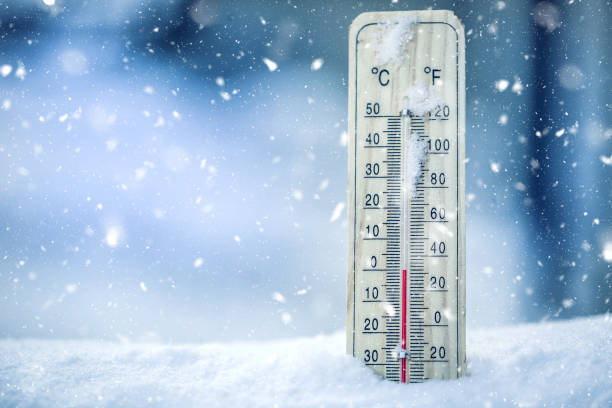Preparing for Extreme Cold Weather Starting January 19 - from MDHHS
Thursday January 16, 2025
The coldest air of the season so far is forecasted to begin this Sunday, January 19.

The coldest air of the season so far is forecasted to begin this Sunday, January 19 and last at least through Wednesday, January 22. Extreme low temperatures are expected with daily highs only reaching single digits and lows at or below zero. The wind chill may make it feel like double digit below zero temperatures.
Two previous cold events this season (November 28 to December 7 and December 12 to 14) led to a spike in cold-related illness (CRI) emergency department (ED) visits across the state. The majority of ED visits were among males and among individuals aged 55+. Given the significantly lower temperatures forecasted for January 19 through January 22, there is an increased risk for more CRI ED visits. Those without access to shelter or adequate housing and those having to work outside are particularly vulnerable to these extreme cold temperatures.
In addition to cold-related illness, there is an increased risk for Carbon Monoxide (CO) poisoning as people may use heat sources, such as generators or other gas-powered equipment, improperly.
Here are links to resources and information that will be helpful in responding to CRI and CO poisonings:
MDHHS Cold Health and Safety and CO Resources:
MDHHS Cold Health and Safety Fact Sheet – also in Spanish and Arabic
Michigan Prepares – Winter Weather
Carbon Monoxide Poisoning Factsheet
MDHHS Learn More About Carbon Monoxide Poisoning
Michigan 2-1-1
Call 2-1-1 or visit mi211.org for information on warming centers. Emergency preparedness coordinators and emergency managers can update warming center information in MICIMS through the WebEOC to ensure MI 2-1-1 has the latest information.
CDC Winter Weather and CO poisoning resources:
CDC Winter Weather: Before, During, and After
CDC - Generator Safety (fact sheet in multiple languages)
CDC - Carbon monoxide (fact sheet in multiple languages)
CDC - Carbon Monoxide Poisoning Basics – Translated Fact Sheets
National Mental Health Resources:
24/7 Disaster Distress Helpline at 800-985-5990
24/7 National Suicide Prevention Lifeline at 988.
MDHHS Environmental Health (EH) Bureau:
EH Hotline - 1-800-648-6942 (Monitored M-F, 8 a.m. to 5 p.m., with afterhours service for emergency)
